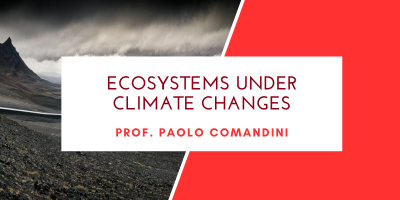Ecosystems Under Climate Changes

Period: First semester
Course Unit Contents: Basic concepts: ecology basics, concepts of biodiversity, ecosystem functions and services (e.g., regulation of biogeochemical cycles), and social-ecological systems.
Definitions and projections regarding climate change. History of climate change (IPCC). Different methodological approaches to studying the effects of climate change on ecosystems.
Effects of climate change on the main physical, chemical and biological processes in aquatic and terrestrial ecosystems, with focus on relevance to biogeochemical cycles.
Chemical, physical, and biological processes dependent on factors influenced by climate change such as temperature, meteorological and hydrological dynamics, and extreme events. Environmental degradation and habitat loss. Aquatic and terrestrial case studies: effects of climate change on biological communities and ecosystem functions, biological invasions, and processes through which organisms contribute to ecosystem structure and function.
Conservation, restoration, and adaptation. Concepts and techniques: engineering solutions, Nature-Based Solutions and adaptation processes in social-ecological systems. Historical and contemporary case studies.
Planned learning activities and teaching methods: In-class teaching.
In addition to contacting the course instructor, students with disabilities, Specific Learning Disorders (SLD), Special Educational Needs (SEN), and other health conditions can reach out to the Student Services Office - Inclusion Unit to receive more information about opportunities to access teaching with specific support and tools.
